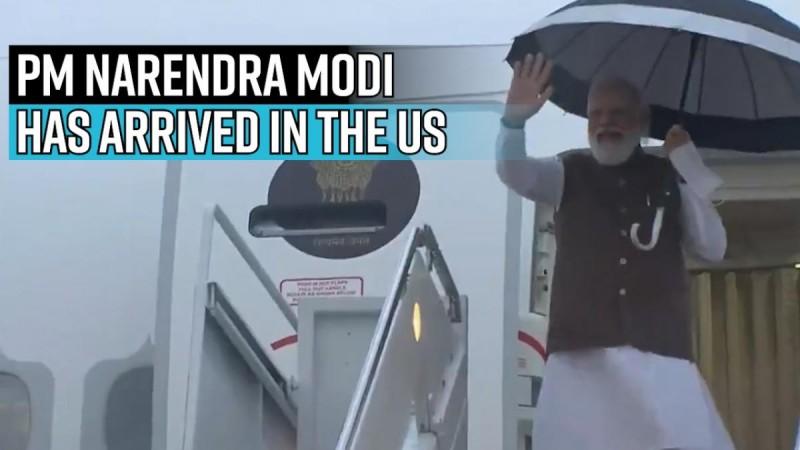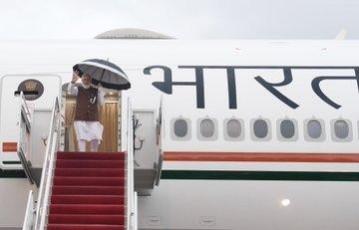When US President Joe Biden and Indian Prime Minister Narendra Modi sit down for their first-ever personal meeting, and bilateral, at the White House on Friday, the meeting will be historic in true meaning of the word "historic". This is Year Zero of the Post-Covid Era, and a new world order is in throes of taking birth.
It is but obvious that aides of both leaders would have drawn up a very tight-knit agenda for the discussion, and the topics to be covered in the 50 or so minutes at their disposal.

These topics of discussion can be organized in a 5-cornered pentagon, as below:
(1) What each wants to extract from the other, and persuades the other as a mutual win-win.
(2) What compromise each wants from the other, in recognition of the special needs it has.
(3) Some exchange of favours on some issues - with rain-check to be cashed in future.
(4) To resolve, papering over of irritants, contentious issues in bilateral US-India relations.
(5) To identify areas of cooperation for regional and global affairs, for mutual win-win.
Having organised the above pentagon framework of the Biden-Modi meeting, we can now proceed to drill down and analyse the specifics of each of the five corners.
In this column, your author focuses only half of the equation - i.e. only on what the United States, as represented by President Biden, may want or desire from India. The second half of the equation, i.e. what India wants from the US, will be subject of a subsequent column.
Thus, below listed, are some of the key questions that President Biden will ask of PM Modi:
1. More defence purchases by India: The bottom-line that helps the US economy and jobs in America is the export of defence goods. Any leader wants exports, job-creation.
2. What is the muscle that India will contribute to the QUAD? Biden needs to calculate his strengths, and of allies, before a Biden-Xi summit, due soon. So that when he walks into the meeting with Chinese President Xi Jinping, he knows what assets and force-vectors he can marshal. What and how can India add to the heft for the US, Biden, when he negotiates with Xi?
3. Resilient supply-chains, and Standards: How will India improve its attractiveness for US, Japanese, and other companies that could re-locate from China? Specifically, with focus on manufacturing of semi-conductor chips, pharmaceuticals, and automobiles.
4. Covid Cooperation: How will India help the US in its global mission re Covid-19? What will India contribute to help the global aims and commitments re Covid-19?
5. Climate change and Green Energy: How will India contribute to US and global targets for climate change, and clean energy? Green energy? Progress to Hydrogen energy?
6. Cyber-space and Cyber-security: How will India assist in US and global efforts to counter the challenges in Cyber-Space that threaten US sovereignty, and global peace. Biden will present an ask, and want a buy-in, contribution from India on this strategy.
7. Hi-tech collaboration in Space: America needs to most urgently deny China a dominance in space. China is proceeding fast to be the Middle Kingdom that will position itself between the Heavens and planet Earth - and will completely dominate planet Earth. How and where can the US and India cooperate to deny China this Middle Kingdom dream?
8. Trade concerns of US companies: Where is India on trade liberalization? How is India responding to complaints of US companies regarding the non-tariff, and tariff, barriers that they are facing?
9. United Nations: The American side will assume that the India side has done a very careful analyses of the speech delivered by President Biden at the UN, two days ago. Where and what can India contribute to the aims that were outlined in that speech?
10. Afghanistan: The ask of India on Afghanistan will depend on what the US is planning as overall strategy re Afghanistan. However, yes, US would like to know what India can propose for the stabilization of Afghanistan?
11. Terrorism and Radicalization: The US may lead a global convention on terrorism. Enhanced intelligence sharing, strengthening of the FATF, how to eliminate or quarantine terror sources, and how to enforce civic behaviour by state actors - would be touched upon, and India's cooperation invited all across.
Please note that the above list is of what only the US side wants. From the India side, it has its own list of what it wants from the US, and Modi may have his own grand bargain that he may spring at Biden. As earlier mentioned, the India side list will be the subject of a subsequent column.

Once the two leaders, Biden-Modi, have ticked the above topics, over a glass of refreshing lemonade*, who knows what other big idea, the grand bargain, private secret deal, maybe proposed by Biden - or, by Modi. Maybe the US invites India to join the Five-Eyes (FVEY) Network?
*Dear reader, please pardon me for this liberty of suggesting lemonade! There is a reason - in another avatar, I am founder of the Lemonade Party, which is a global motivational movement that promotes a lifestyle of peace, happiness, and problem-solving with a can-do attitude in personal, and social living, accompanied with a philosophy of "Live and Let Live" as a life mantra.
The motto of the Lemonade Party is the proverbial phrase, "When life hands you a lemon, make lemonade". As many would relate, this phrase is an exhortation, encouragement to try to do your best, and to find a new way ahead, whenever life hands you obstacles and difficult times.
Biden has been handed several lemons, Modi has his own lemons, and the world has its own lemons. It is time for Biden and Modi to make lemonade, and open a lemonade stand outside the UN HQ building in New York. And invite the world to come by.
(Robinder Sachdev is president of The Imagindia Institute. Views expressed are personal.)








